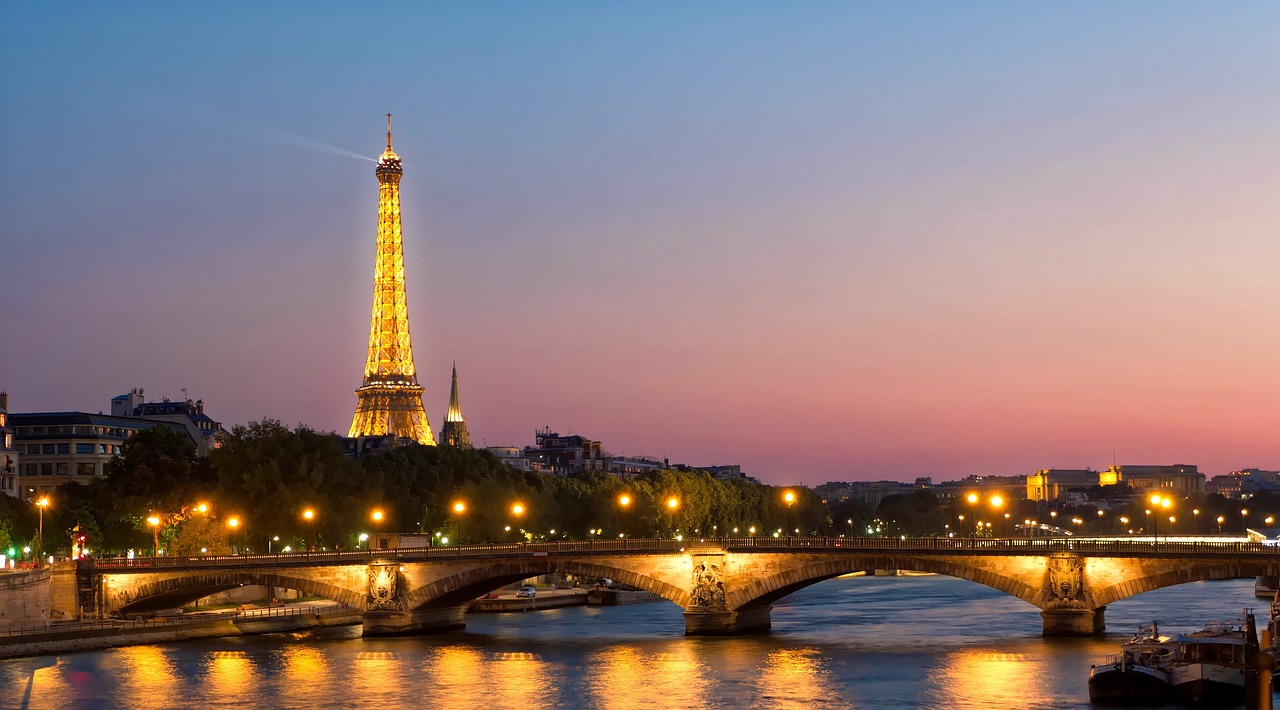Getting Around: Transportation Tips for France
France is a beautiful country with a rich history and diverse landscapes. From the bustling streets of Paris to the charming countryside villages, there is so much to explore. To make the most of your trip, it’s essential to understand the transportation options available in France. This guide will provide you with detailed information on how to get around the country efficiently and conveniently.
1. Air Travel
France has a well-developed network of airports, making air travel a popular choice for both domestic and international travelers. The country is served by several major airports, including Charles de Gaulle Airport in Paris, which is one of the busiest airports in the world. Other notable airports include Orly Airport in Paris, Nice Côte d’Azur Airport, and Lyon-Saint Exupéry Airport.
- Flight Options: There are numerous airlines operating in France, including Air France, the national carrier. Other major airlines such as EasyJet, Ryanair, and British Airways also offer flights to and from various French cities.
- Airport Transfers: Most airports have convenient transportation options to get you to your destination. You can choose between taxis, shuttle buses, or public transportation like trains or buses, depending on your budget and preferences.
- Domestic Flights: If you plan to visit multiple cities within France, domestic flights can save you time and offer convenience. Airlines like Air France and HOP! operate domestic flights between major cities.
2. Trains
France has an extensive and efficient railway system, operated by the national railway company, SNCF. Trains are a popular mode of transportation for both short and long distances, offering comfort and scenic views of the countryside.
- TGV: The Train à Grande Vitesse (TGV) is France’s high-speed train network, reaching speeds of up to 320 km/h (200 mph). It connects major cities like Paris, Lyon, Marseille, and Bordeaux, making it a quick and convenient option for travel.
- Regional Trains: In addition to the TGV, France has an extensive regional train network, known as TER (Transport Express Régional). These trains connect smaller towns and villages, allowing you to explore the country beyond the major cities.
- Train Tickets: It is recommended to book your train tickets in advance, especially for long-distance journeys and during peak travel seasons. Tickets can be purchased online, at train stations, or through ticket machines.
3. Buses
Buses are a cost-effective option for traveling within France, particularly for shorter distances or accessing remote areas not served by trains. Several bus companies operate in France, offering both domestic and international routes.
- FlixBus: FlixBus is one of the largest bus operators in Europe and provides extensive coverage within France. They offer affordable fares, comfortable seating, and onboard amenities such as free Wi-Fi.
- Eurolines: Eurolines is another popular bus company, specializing in international routes. They connect major French cities with various European destinations.
- Local Buses: Within cities, local buses provide an efficient way to get around. Most cities have their own public transportation networks, including buses, trams, and metros. Purchase tickets from kiosks or ticket machines before boarding.
4. Car Rental
If you prefer the freedom and flexibility of driving, renting a car in France is a viable option. It allows you to explore the countryside at your own pace and visit remote areas not easily accessible by public transportation.
- Rental Companies: Several international car rental companies operate in France, including Hertz, Avis, and Europcar. It is advisable to book your rental car in advance, especially during peak travel seasons.
- Driving Requirements: To rent a car in France, you must be at least 21 years old (age restrictions may vary by rental company) and hold a valid driver’s license from your home country. International driving permits are not mandatory but can be useful.
- Toll Roads: France has an extensive network of toll roads, known as Autoroutes. These roads offer fast and efficient travel between cities but require payment of toll fees. Make sure to have cash or a credit card for toll payments.
5. Cycling
France is renowned for its beautiful countryside and scenic routes, making it a perfect destination for cycling enthusiasts. Cycling allows you to immerse yourself in the natural beauty of the country while enjoying a healthy and eco-friendly mode of transportation.
- Bike Rentals: Many cities and tourist destinations offer bike rental services, allowing you to explore at your own pace. Look for dedicated bike rental shops or inquire at your accommodation for recommendations.
- Cycling Routes: France has a well-established network of cycling routes, including the famous Veloroutes and Voies Vertes. These routes are well-marked and cater to various skill levels, offering a unique way to experience the country.
- Safety: When cycling in France, always wear a helmet and follow traffic rules. Be aware of your surroundings and use designated bike lanes whenever possible.
6. Ferries
If you plan to explore the islands or coastal regions of France, ferries provide a convenient mode of transportation. They offer scenic journeys and connect mainland France with popular destinations such as Corsica, Brittany, and the French Riviera.
- Ferry Operators: Several ferry companies operate in France, including Brittany Ferries, Corsica Ferries, and SNCM. They offer regular services and various onboard amenities, such as restaurants and cabins for overnight journeys.
- Booking: It is advisable to book your ferry tickets in advance, especially during peak travel seasons. Tickets can be purchased online or at ferry terminals.
- Duration: The duration of ferry journeys varies depending on the route and destination. Shorter crossings, such as between mainland France and Corsica, can take around 6-8 hours, while longer journeys to destinations like Reunion Island may take several days.
7. Taxi and Rideshares
Taxis and rideshares are readily available in major cities and tourist areas in France. They offer a convenient and comfortable way to get around, particularly for short distances or when public transportation is limited.
- Taxis: Taxis can be hailed on the street or found at designated taxi stands. They are metered, and prices may vary depending on the time of day and distance traveled.
- Rideshares: Popular rideshare services like Uber operate in major French cities, providing an alternative to traditional taxis. Simply download the app, request a ride, and pay through the app.
- Availability: Taxis and rideshares are more abundant in urban areas. It may be more challenging to find them in remote or rural locations.
8. Metro Systems
Several cities in France, including Paris, Lyon, and Marseille, have efficient metro systems. These underground trains provide a quick and convenient way to navigate within the city.
- Paris Metro: The Paris Metro is one of the most extensive metro networks in the world, with multiple lines serving the city and its suburbs. It is an efficient way to reach popular attractions and navigate the bustling capital.
- Lyon Metro: The Lyon Metro consists of four lines and covers the city and its surrounding areas. It is an affordable and reliable mode of transportation for both residents and visitors.
- Marseille Metro: The Marseille Metro has two lines that connect the city center with the outskirts. It is an efficient way to get around and explore the vibrant city.
9. Walking
Exploring France on foot is a delightful way to immerse yourself in its culture and charm. Many cities and towns have pedestrian-friendly streets, allowing you to stroll leisurely and discover hidden gems.
- City Tours: Joining a guided walking tour is an excellent way to explore cities like Paris, Bordeaux, or Nice. Knowledgeable guides will take you through iconic landmarks and share fascinating insights.
- Walking Maps: Most tourist offices provide free walking maps of city centers, highlighting key attractions and recommended routes. These maps are handy for self-guided tours.
- Safety: When walking in busy areas, be mindful of your belongings and stay aware of your surroundings, especially in crowded tourist areas where pickpocketing can occur.
10. Public Transportation Passes
If you plan to use public transportation frequently during your stay in France, consider purchasing a transportation pass. These passes offer unlimited travel within a specified period and can save you money.
- Paris Navigo Card: The Paris Navigo Card provides unlimited travel on the metro, buses, trams, and RER within specific zones. It is available for weekly or monthly use and offers significant savings compared to individual tickets.
- Lyon City Card: The Lyon City Card includes unlimited access to public transportation, as well as free or discounted entry to museums and attractions. It is available for different durations and is a convenient option for exploring the city.
- Regional Passes: Some regions in France offer regional transportation passes, allowing unlimited travel within a specific area. These passes are particularly useful if you plan to explore a specific region in-depth.
11. Accessibility
France strives to provide accessible transportation options for individuals with disabilities. Many public transportation systems have facilities and services in place to accommodate passengers with mobility challenges.
- Accessible Metro Stations: Metro systems in major cities have designated accessible stations with elevators and ramps. These stations are equipped to assist individuals with mobility impairments.
- Wheelchair-Friendly Buses: Buses in France are gradually becoming more wheelchair-friendly, with low-floor or kneeling buses available on many routes.
- Assistance Services: Train stations and airports provide assistance services for passengers with disabilities. It is advisable to inform the relevant authorities in advance to ensure a smooth travel experience.
12. Conclusion
Getting around France is a breeze with its extensive transportation options. Whether you prefer the speed of trains, the convenience of buses, the freedom of driving, or the charm of walking, there is a mode of transportation that suits your needs. Plan your itinerary, consider your budget and preferences, and make the most of your journey through this beautiful country.
France Image 1:

France Image 2:

France Image 3:

References
- www.airfrance.com
- www.sncf.com
- www.flixbus.com
- www.eurolines.com
- www.hertz.com
- www.parisinfo.com
- www.lyon.fr
- www.marseille-tourisme.com
- www.brittany-ferries.co.uk
- www.corsica-ferries.co.uk
- www.uber.com

